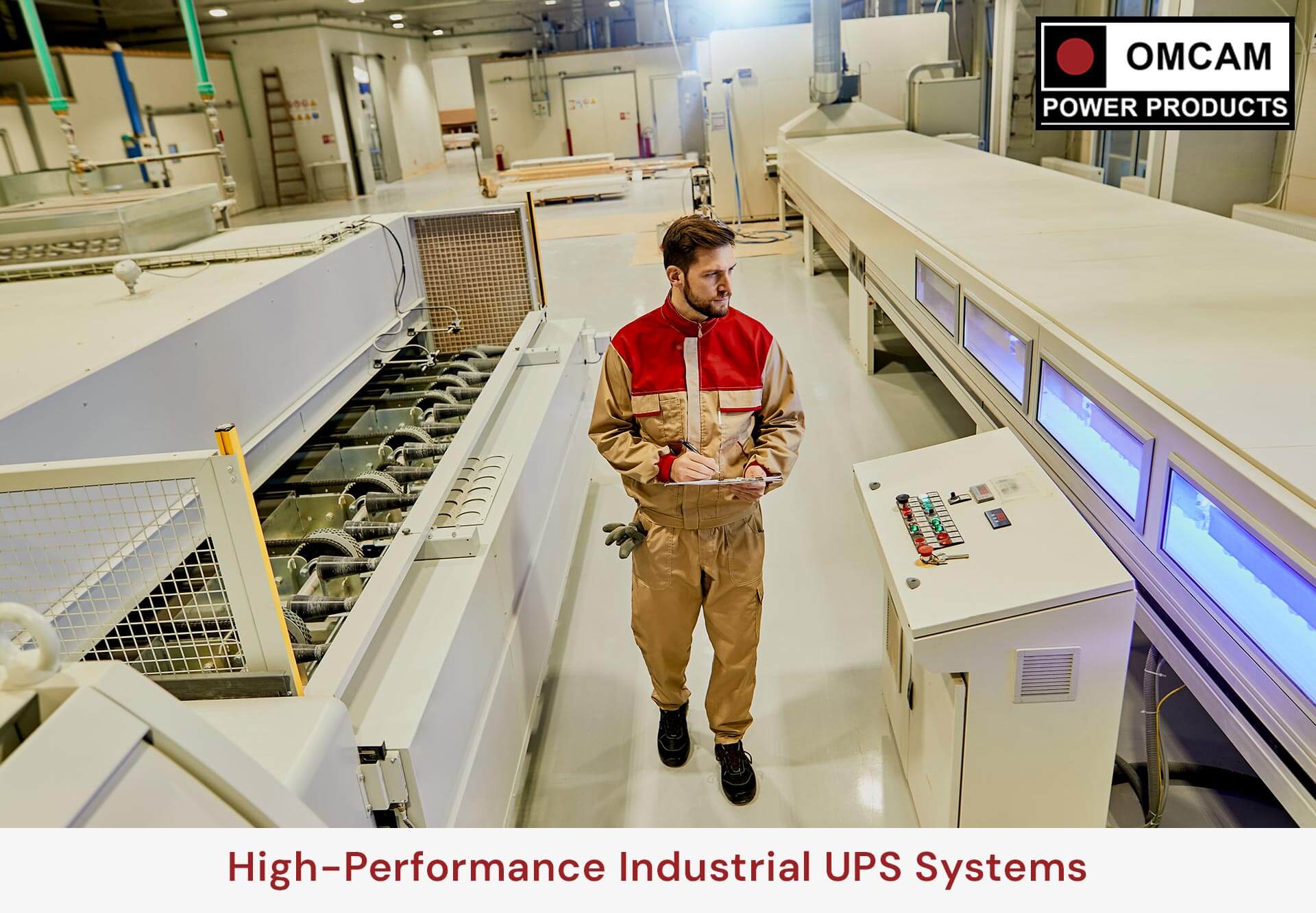Ensuring Reliability with High-Performance Industrial UPS Systems
In the fast-paced and ever-evolving world of industrial operations, power reliability is a critical factor for maintaining productivity and preventing costly downtime. Uninterrupted power supply (UPS) systems are vital to ensuring that industries can operate smoothly even in the face of power disruptions, surges, or outages. High-performance industrial UPS systems are not just backup power sources; they are vital components that ensure the resilience of modern industrial operations.
Why are Industrial UPS Systems Crucial?
- Power Stability in Mission-Critical Applications: Industrial environments often rely on complex machinery, IT infrastructure, and automation systems that cannot afford interruptions. A sudden power loss could lead to halted production lines, equipment damage, or even catastrophic data loss. Industrial UPS systems provide a seamless power backup that ensures these systems stay up and running during power failures.
- Protection Against Voltage Fluctuations: Power surges, sags, and fluctuations are common in industrial environments, especially with high-powered equipment running continuously. Such electrical disturbances can damage sensitive machinery, decrease equipment lifespan, or lead to inconsistent operations. High-performance UPS systems offer voltage regulation, ensuring that the connected equipment operates within safe voltage ranges.
- Data Integrity: Industrial operations often rely on advanced control systems and data processing systems to manage everything from manufacturing lines to inventory management. A power failure without a backup system could cause data corruption or loss, leading to significant operational disruption. UPS systems allow enough time for safe shutdowns, preserving both hardware and data integrity.
Features of High-Performance Industrial UPS Systems
- Scalability and Flexibility: As industries expand, so do their power needs. High-performance industrial UPS systems are designed to be scalable, meaning they can grow with your business. Whether you need to add more equipment, shift to a more energy-intensive process, or expand the facility, modern UPS systems can be customized to match these evolving demands.
- Efficiency and Energy Savings: Modern UPS systems are built for optimal energy efficiency. They use advanced power electronics and inverter technologies that minimize energy loss during the power conversion process. This can significantly reduce energy costs while helping industries meet sustainability goals by lowering carbon footprints.
- Robust Monitoring and Remote Management: State-of-the-art UPS systems often come equipped with advanced monitoring features that allow users to track performance in real-time. Remote management and diagnostics allow maintenance teams to identify potential issues before they become critical, ensuring continuous performance. Some systems even have predictive analytics to forecast when parts may need maintenance or replacement.
- Long Battery Life and Quick Recovery: High-performance UPS systems use advanced battery technology such as lithium-ion or VRLA (Valve-Regulated Lead-Acid) batteries, which have longer lifespans and faster charge/discharge cycles. These systems provide enough backup time to power down equipment safely or wait for the grid to restore power, ensuring smooth operations and minimal disruption.
Benefits of Investing in a High-Performance UPS System
- Enhanced Operational Continuity: Industries that rely on continuous operations—such as manufacturing plants, data centers, healthcare facilities, and critical infrastructure-cannot afford power interruptions. A high-performance UPS system ensures that operations continue smoothly, even in the event of unexpected outages.
- Cost Savings: By preventing downtime, reducing damage to equipment, and ensuring the longevity of power-hungry machinery, UPS systems ultimately save companies money. Additionally, the enhanced energy efficiency offered by modern systems helps cut energy consumption and related costs over the long term.
- Improved Safety: With industrial UPS systems in place, equipment and personnel are better protected from electrical surges, short circuits, and other safety hazards. The systems can automatically regulate power to ensure safe operating conditions, and prevent catastrophic failure that could harm workers or disrupt operations.
- Compliance and Reputation: Industries that rely on strict quality controls, data accuracy, and operational reliability need to adhere to regulatory standards. By integrating high-performance UPS systems, companies can ensure they meet the necessary compliance regulations, avoid penalties, and maintain their reputation for reliability.
Conclusion
In an industrial setting, where power disruptions can have serious consequences, the need for high-performance UPS systems cannot be overstated. These systems provide the foundation for reliable, efficient, and safe operations, allowing industries to maintain performance and continuity even in the face of electrical instability.
